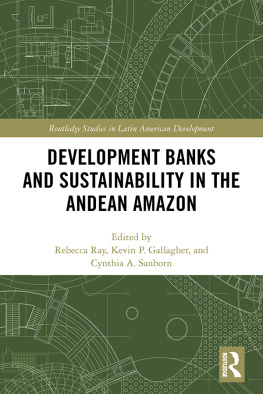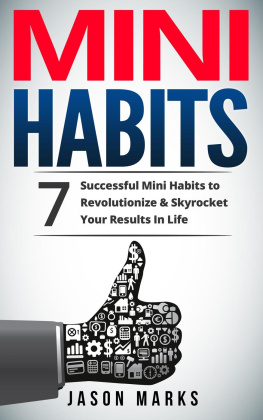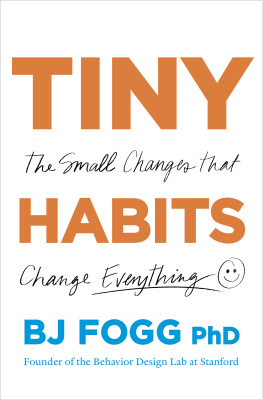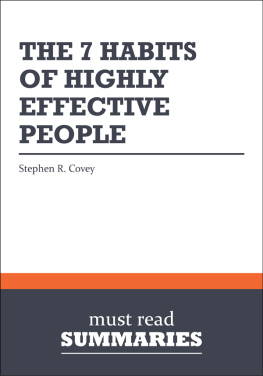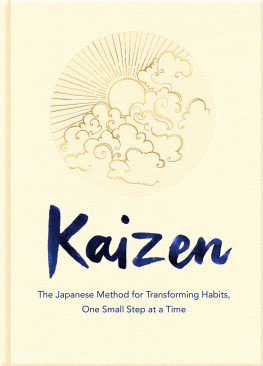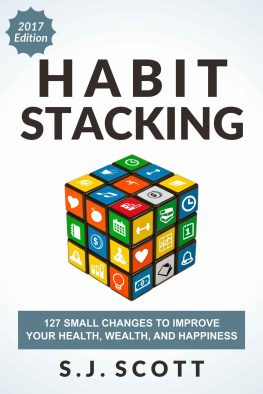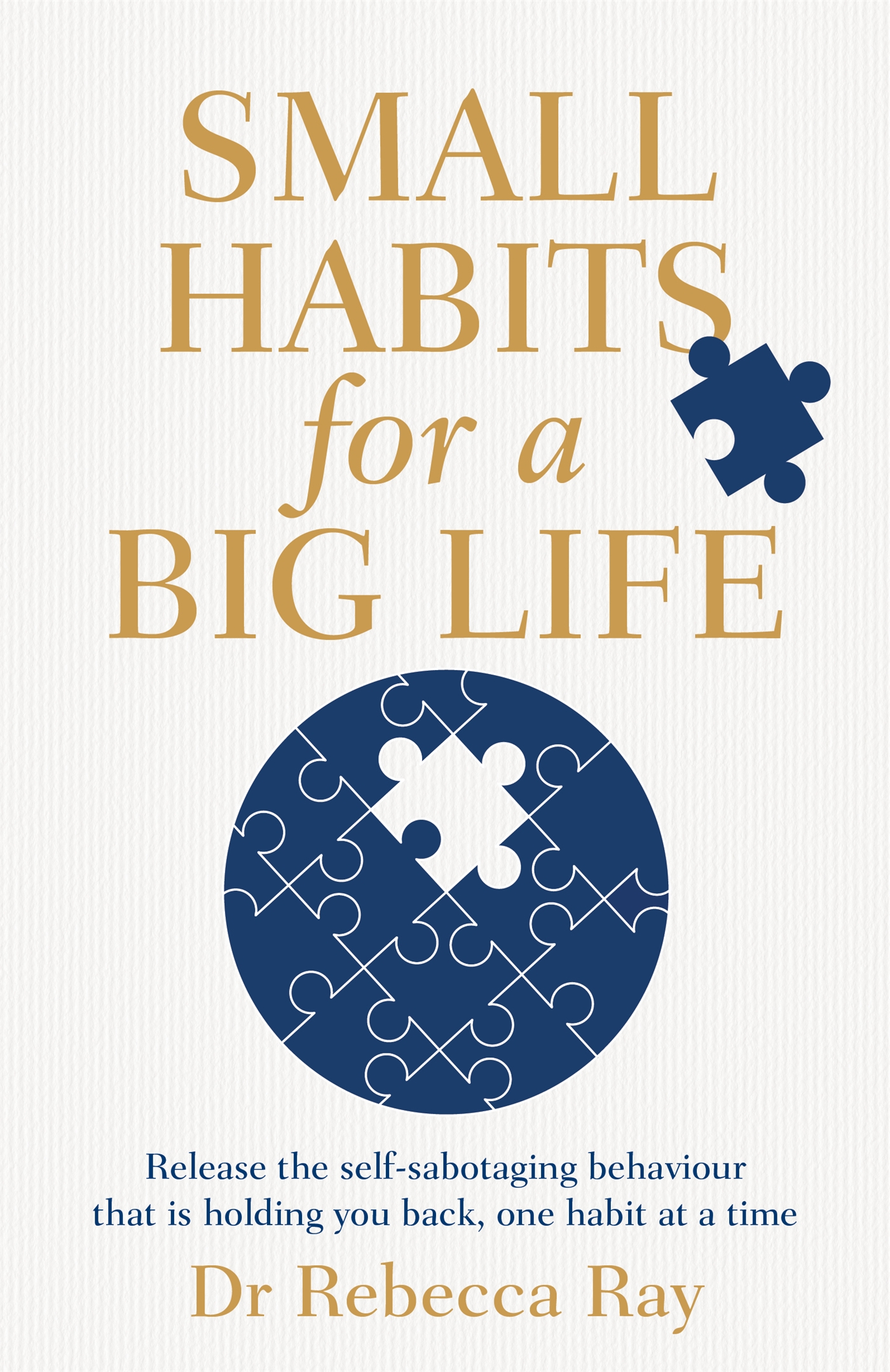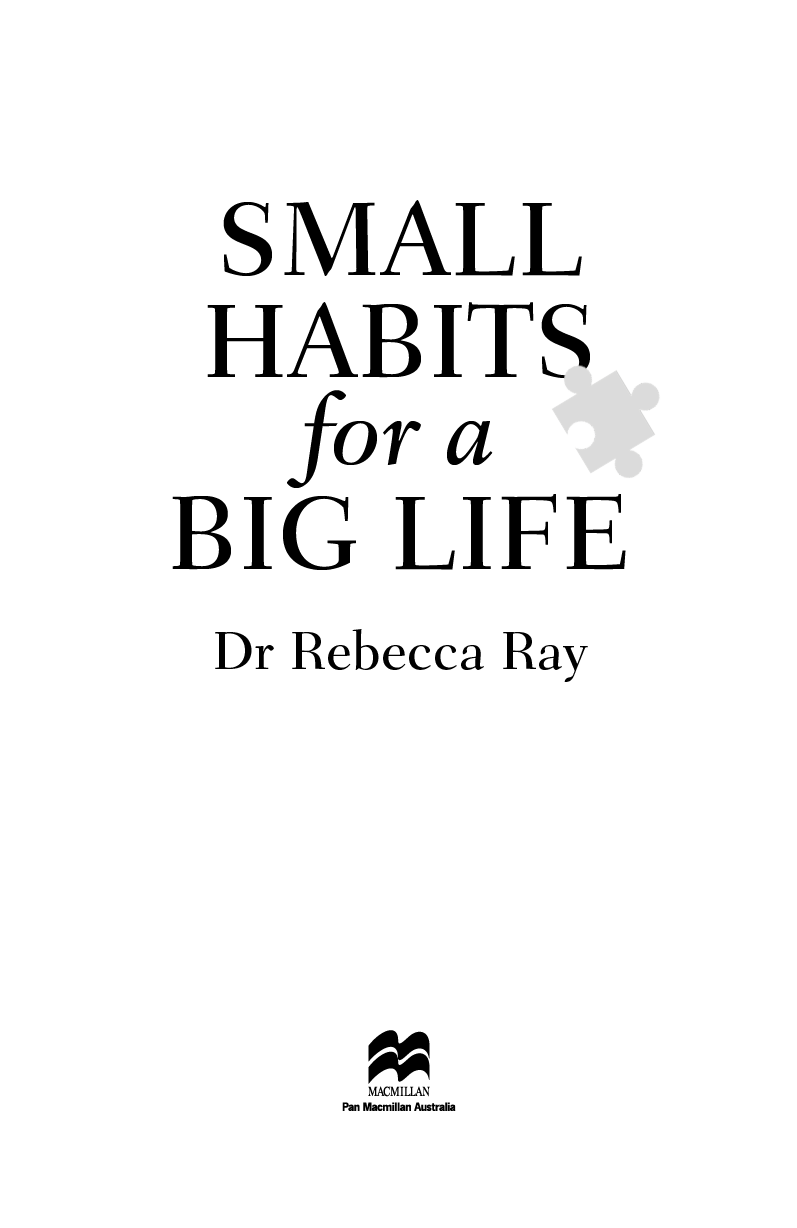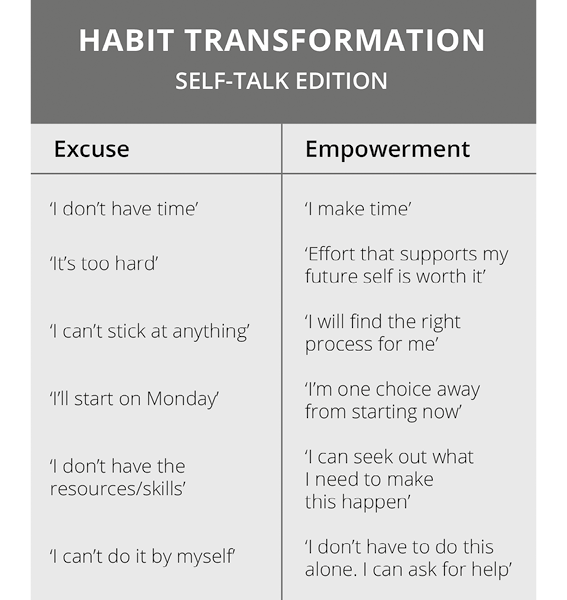About Small Habits for a Big Life
Change is not about grand statements and sweeping gestures. It is about chipping away, a bit at a time, at the habits that hold us back.
Dr Rebecca Ray knows about the power of small habits to make big changes. By introducing small changes into her own life, she transformed her career as a clinical psychologist to become one of Australias most effective communicators on matters of the mind. Rebecca has helped many members of her large online community and her clients do the same.
In Small Habits for a Big Life , Dr Rebecca Ray breaks down the process for her reader. She explains how we can override the part of the brain that seeks pleasure and comfort (ice cream and wine) and activate the parts that tolerate some discomfort for the sake of long-term goals (an hour of study instead of an hour of TV).
Small Habits for a Big Life clears the way for readers to embark on their own path to change and provides exactly the right amount of support along the way.
Contents
For you, dear reader, for picking up this book as a mark of willingness to shape your habits. Your commitment to your personal evolution is stunning, and I know from personal and professional experience that its never easy. Its my privilege to be alongside you, no matter how many times it takes.
Introduction
Dear reader, its no small act that youre here with these pages in your hands. It might feel small. But the intention behind you choosing this book as your next read is far from insignificant. In doing so, you are making a choice to transform the life of your future self. And that, my friend, is big. Really big.
But Im going to go out on a limb here and say that this is not the first time youve made such a choice. You want something more for your future self. Youre determined to be better than you currently are, because there are things that youre doing that are not working. Things that were once mere blips off course from the mental GPS that you hold for your life, that have insidiously become habits of self-sabotage, that no amount of internal nudging to Re-route! Re-route! corrects.
Its not that youve completely ignored the directives of your inner voice to, well, get your sh*t together (Wait, I need to check if your inner dialogue gets a little sweary like mine?). Youve listened, and tried to make changes. Multiple times. And it turns out that changing habits is not as simple as programming yourself once to do what you know you should do, and then staying there. Humans dont operate on a set and forget basis immediately. But the good news is that we can, when you understand the steps of habit formation. Im here to help you take back your direction by releasing self-defeating habits and patterns of self-sabotage. I want to see you become the sole author and editor of your life: to overcome your limiting beliefs and fears and transform your self-doubt into confidence, so that you can create a life that is fulfilling, unapologetic and free. And Im going to show you how with small steps that actually work to make a big difference.
Honesty is my love language, and I need you to know that Im not here as someone who has discovered the secret key to having life all sorted out. As humans, we are each climbing our own mountains. From my mountain, I can see things ahead of you that you may not yet see or feel confident to navigate. I use what I know from my own climb to show you how to make your future self proud by transforming your present-moment experience.
Were going to be talking about making change for the better by editing your life to align with the things that are most important to you and finding clarity around what you want to stand for and create for yourself. To do that, we need to start with where youre at, what is working, what isnt working, and where you might be tripping yourself up or blocking yourself from moving forward.
I know youve had enough of going around in circles. Theres only so many times you can start again before you also start to lose trust in yourself. With psychological strategies backed by the power of science, Im going to show you how to move forward in a workable, sustainable way.
Youre here because you can see a life for yourself that is meaningful, and inspiring, and full of courage, and Im here to remind you that its time you started living it.
Youre here because the space in between where you are now and the future self you want to live into feels uncertain, and scary, and perhaps a little overwhelming, and Im betting you dont feel quite ready (but youre willing to try anyway). Courage is always more powerful when it has company, which is why we are going to create this brave transformation together, me showing you the way, and you taking the path. Are you ready for the first small step into a bigger and better life?
Self-sabotage: why do we do it?
Everyone engages in some form of avoidance on a regular basis. As human beings, we are wired to reduce our discomfort as much as possible. Thousands of years ago, when we were roaming the savannah in clans, discomfort was a very real threat to survival. Feel uncertain about whether the clan approaching over the hill is friend or foe? Avoidance is the preferred option until certainty can be met. Become unwell from some berries you found on a random bush? Avoidance is the best course of action in the future. Punished by other members of the clan for failing to find water when it was needed? Avoidance of shame in the future ensures you continue to belong with your people, because that belonging is what gives you access to protection, information and resources that help you to survive.
A characteristic of a species that helps it to survive will always strengthen over time, and so today, we are great discomfort-avoiders. And a little bit of avoidance is not a problem. In fact, it can be useful when we need time out, time to replenish, or time to boost our stores of creativity and willingness to do hard things.
Self-sabotage is anything we do that gets in the way of what we need or want to be doing. Its anything we do that moves us away from being aligned with our values, even though its purpose is to assist us in avoiding discomfort in the short-term.
Avoidance becomes self-sabotage when we spend more time on self-sabotage behaviours than on doing things that are important to us, or when it moves us further away from where we want to be, or when it drains our mental, physical, emotional and spiritual energy, or time, money and resources.
Common types of self-sabotage include procrastination, making excuses for your inaction, perfectionism, listening to, and believing, negative self-talk, not taking time for self-care, comparing yourself with others, seeking approval from others, and poor time management.
Self-sabotage can become a habit that may affect any area of our lives. A little Netflix is much easier than going to the gym, and before you know it, you havent exercised in months. A busy period at work might become years of long hours that could easily lead to burnout. You tell yourself that some day, when youve got time, youll open your own art studio. But some day is not a day of the week. The fear of failing has your inner critic screaming at you to stay safe in your comfort zone. And another decade passes, and your art studio still remains only a dream, not the reality youd hoped to be living by now.


